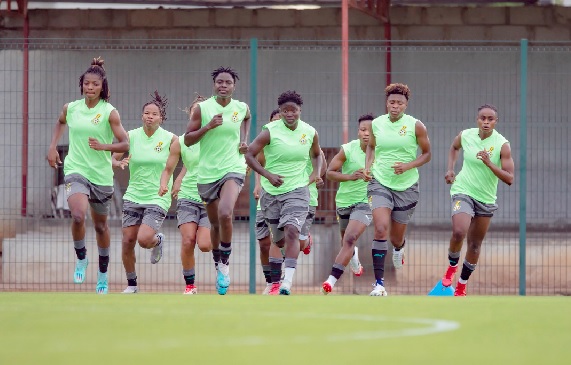Ghana’s Black Queens head into the 2024 Women’s Africa Cup of Nations (WAFCON) in Morocco with a burning desire to restore pride, but their mission to reclaim their place among the continent’s elite could end in disappointment unless head coach Kim Björkegren urgently patches up a defence that was brutally exposed in their final warm-up match.
The Queens, three-time runners-up and two-time bronze medallists, are making their 13th appearance at the continental showpiece.
But they are no longer seen as favourites. Instead, that space is now reserved for the likes of nine-time champions Nigeria, reigning title holders South Africa, and hosts Morocco, all of whom head to the upcoming WAFCON brimming with confidence and ambition.
This time, Ghana are grouped with defending champions South Africa, tricky Mali, and unpredictable Tanzania in Group C—arguably the “group of death.”
They kick off their campaign on July 7 against Banyana Banyana, and if the recent 3-1 loss to Nigeria is anything to go by, there’s cause for serious concern.
Defensive nightmares
The defeat to the Super Falcons in their final trial game was more than a wake-up call—it was a glaring red flag. Despite being together for over two weeks, the Queens were outclassed by a Nigerian side that had barely set foot in Morocco.
Add that to earlier games where Ghana conceded against Malawi (3-1) and Benin, and the defensive frailties are painfully clear.
The Swedish gaffer has had just five months at the helm since taking over from Nora Häuptle, who made a surprise switch to Zambia. But time is no longer a luxury. Ghana must get their act together—and fast.
Coach Björkegren, the well-travelled Swedish tactician, now faces the ultimate test: mould a cohesive unit capable of shutting down Africa’s best, starting with a formidable South African side that has remained consistent under Desiree Ellis.
Since their last WAFCON meeting in 2016, which Ghana narrowly won 1-0 in the third-place playoff, the two nations have taken vastly different paths.
While Banyana Banyana have flourished—winning silver in 2018, gold in 2022, and competing at the 2023 FIFA Women’s World Cup—the Queens have chopped and changed coaches and missed every major tournament since 2018.
Squad in Focus
Since setting up camp in Morocco on June 15, Björkegren has been fine-tuning his squad of 24, which must be trimmed to 21 by Thursday. Goalkeepers Cynthia Konlan, Afi Amenyeku, and Kerrie McCarthy will vie for the gloves.
The defensive line includes Portia Boakye, Anasthesia Achiaa, Josephine Bonsu, and Ernestina Abambila—players who must now form a watertight backline if Ghana are to survive.
In midfield, there’s quality in Grace Asantewaa, Jennifer Cudjoe, Evelyn Badu and teenage gem Stella Nyamekye.
Up front, the attacking arsenal includes Alice Kusi, Doris Boaduwaa, Princella Adubea and Sherifatu Sumaila—players capable of hurting any defence, but only if the back holds firm.
Brutal group
The draw has been anything but kind. Ghana have been placed in a tough Group C alongside defending champions South Africa, tricky Mali, and dark horses Tanzania.
Their opener against Banyana Banyana is as tough as they come. South Africa, now regulars at the FIFA Women’s World Cup and led by long-serving coach Desiree Ellis, have grown into a continental powerhouse.
Since the Queens last beat them in a 1-0 thriller at the 2016 WAFCON, the two sides have taken very different paths.
Ghana have had six coaching changes and no international appearances, while South Africa have won WAFCON (2022), finished runners-up (2018), and qualified for their maiden Women’s World Cup in 2023.
That pedigree makes them favourites. But with as many as nine players missing from their 2022 title-winning squad, including talismanic forward Thembi Kgatlana, there’s a glimmer of opportunity for Ghana—if they are ready to take it.
While there’s no shortage of talent, what Ghana have lacked in recent games is structure, belief, and defensive discipline.
Mental fortitude
One of the Queens’ biggest flaws at major tournaments has been a lack of mental toughness.
Games that could have been won have been thrown away due to late errors, lapses in focus, or surrendering under pressure. That mindset has to change.
Set pieces must also become a weapon, not a weakness. Against battle-hardened teams like South Africa, it could be the difference between a result and a rout.

